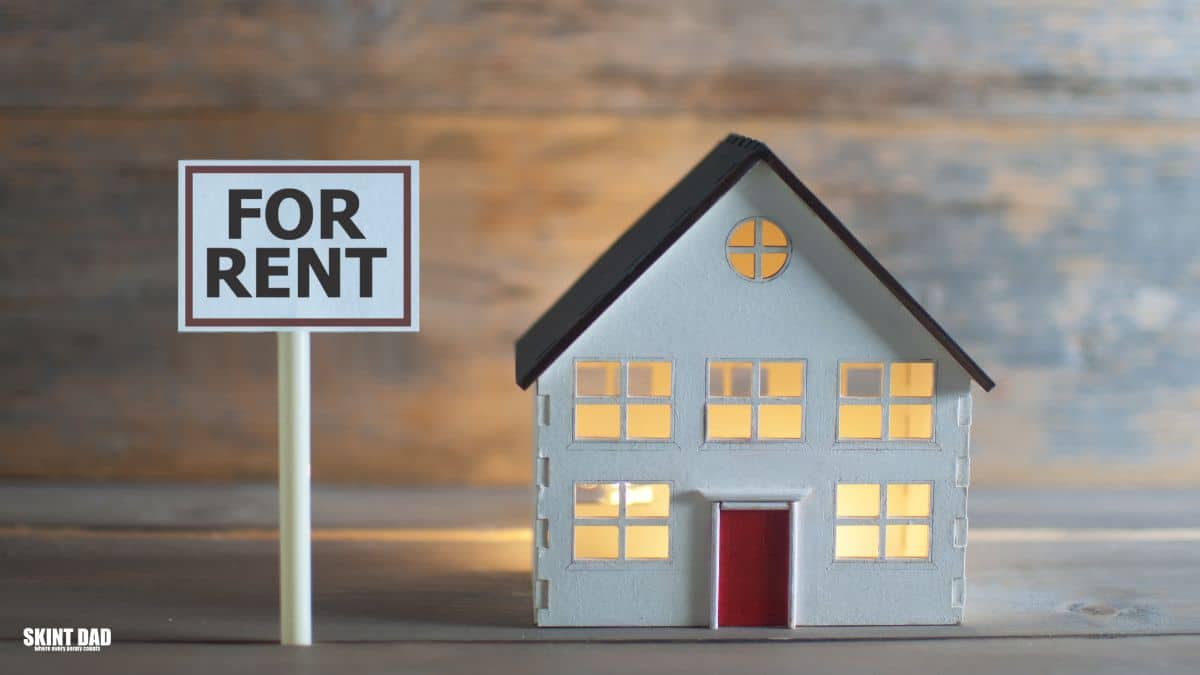Rents have climbed again across the UK. In the year to October 2025, the average private rent rose by 5%, taking the typical monthly cost to £1,360.

That is £65 more each month than last year, adding up to nearly £800 extra a year without your landlord lifting a finger.
It is the slowest rise since 2022, but that does not make it easy.
Get a free £10 bonus with Swagbucks
Earn a bit of extra money in your spare time with surveys, videos, and simple tasks you can do at home.
New users can get a £10 bonus when they sign up.
Get the £10 bonus
Rent has grown faster than wages over the past few years, which is why so many people feel like they are working harder than ever with nothing left over at the end of the month.
What the rise looks like across the UK
The increases vary depending on where you live.
England
Average rent: £1,416
Annual rise: 5%
Wales
Average rent: £817
Annual rise: 6.7%
Scotland
Average rent: £1,008
Annual rise: 3.4%
(Scotland’s figures mostly use new adverts rather than all existing rents, so yours may look different.)
Northern Ireland
Average rent: £866
Annual rise: 6.6%
These are big increases, when pay packets have only grown by around 4.6–4.8% this year. Over the last few years, rent has pulled ahead, leaving the average renter worse off.
Read next: Top 10 cheapest places to live in the UK
Which regions have been hit the hardest
The North East saw the steepest jump at 8.9%.
Yorkshire and the Humber had the slowest rise at 3.8%.
London rents rose 4.3%, and this is the 11th month in a row the pace has slowed.
This matters when you are negotiating a renewal. If you live in a low-growth region, a landlord asking for a 10% rise is miles above trend.
The huge gap between the cheapest and most expensive areas
The most expensive place to rent is Kensington and Chelsea at £3,633 a month.
The cheapest is Dumfries and Galloway at £531.
That is more than a sixfold difference. Even within the same city, rents can vary massively street-to-street.
If your rent feels painful, looking a bus ride away or in a neighbouring town can sometimes save hundreds a month.
How property size affects what you pay
Larger homes come with much higher costs.
One-bedroom home: £1,103
Four or more bedrooms: £2,027
Detached homes: £1,550
Flats and maisonettes: £1,331
If money is tight, switching to a smaller place, taking a lodger (if allowed), or sharing could be the quickest way to bring your monthly spending back under control.
Is this the peak?
Maybe. Rent inflation has slowed from 5.5% to 5%. It is the lowest increase since August 2022.
That is a sign the market might be cooling slightly, but costs are still pushing upwards.
If you are renewing in early 2026, you may see more modest rises than in the last two years, but it will not suddenly get cheap.
How much income should rent take?
ONS and other research show private renters in England spend around 36% of their income on rent, well above the old “30% is affordable” rule.
If your rent is eating up 40–50% of your pay, you are not failing. You are experiencing the reality of the modern housing market. It might still be a sign to explore your options.
What you can do right now
These steps will not fix the whole market, but they can make a real difference to your budget.
1. Start the renewal conversation early
A simple message to your landlord like:
“I’d like to talk about the new rent before anything is agreed. Can we chat this week?”
Many landlords value reliable tenants more than squeezing every pound.
2. Use local data to negotiate
Try saying:
“ONS figures show rents in my region rose around X%. I can manage something in that range, but anything higher will be tough.”
It is calm, fair and backed by official numbers.
3. Check if you can get a Discretionary Housing Payment
If you get Housing Benefit or the housing element of Universal Credit, you may qualify for short-term support through your council. It is meant for precisely this situation.
4. Explore nearby areas
Even moving one or two miles can save hundreds a month. Look at nearby postcodes, older buildings or less “in demand” streets.
5. Know your rights before agreeing to anything
Your landlord must follow proper notice periods and rules for increases. If something feels wrong, speak to Shelter or Citizens Advice before you sign anything.

Skint Dad says:
You cannot control rent rises, but you can control your next move. The more you know, the more power you have when someone tries to bump up your costs.
Saved a few quid with our tips?
If Skint Dad has helped you spend less or feel more in control of your money, you can support the site with a small contribution.
- Side hustles and benefits in the UK: what you need to know - 8 January 2026
- Lloyds Bank switch deal: grab £250 plus Disney Plus for free - 6 January 2026
- Thinking of doing the Co-op freezer deal? Read this first - 6 January 2026
